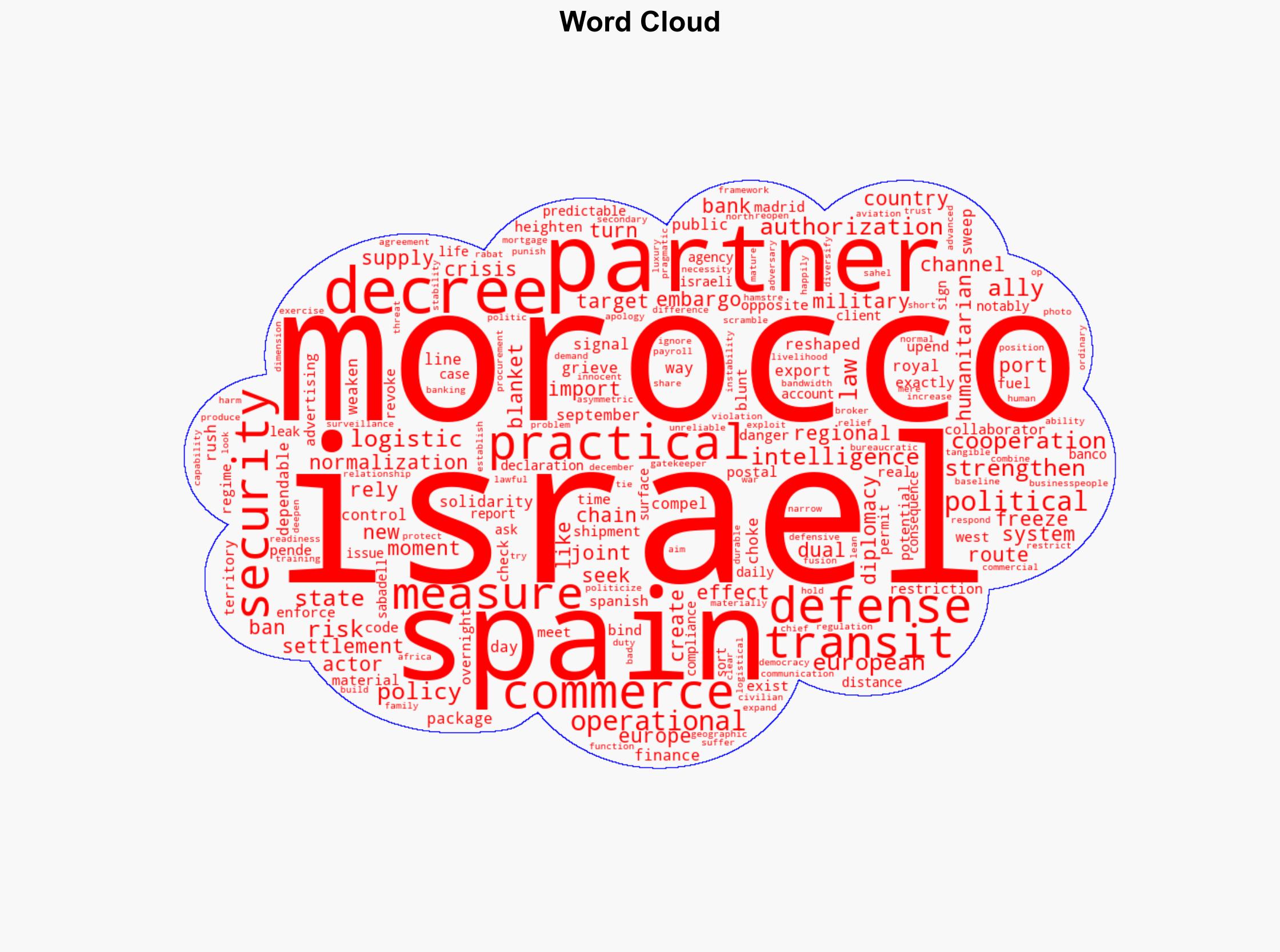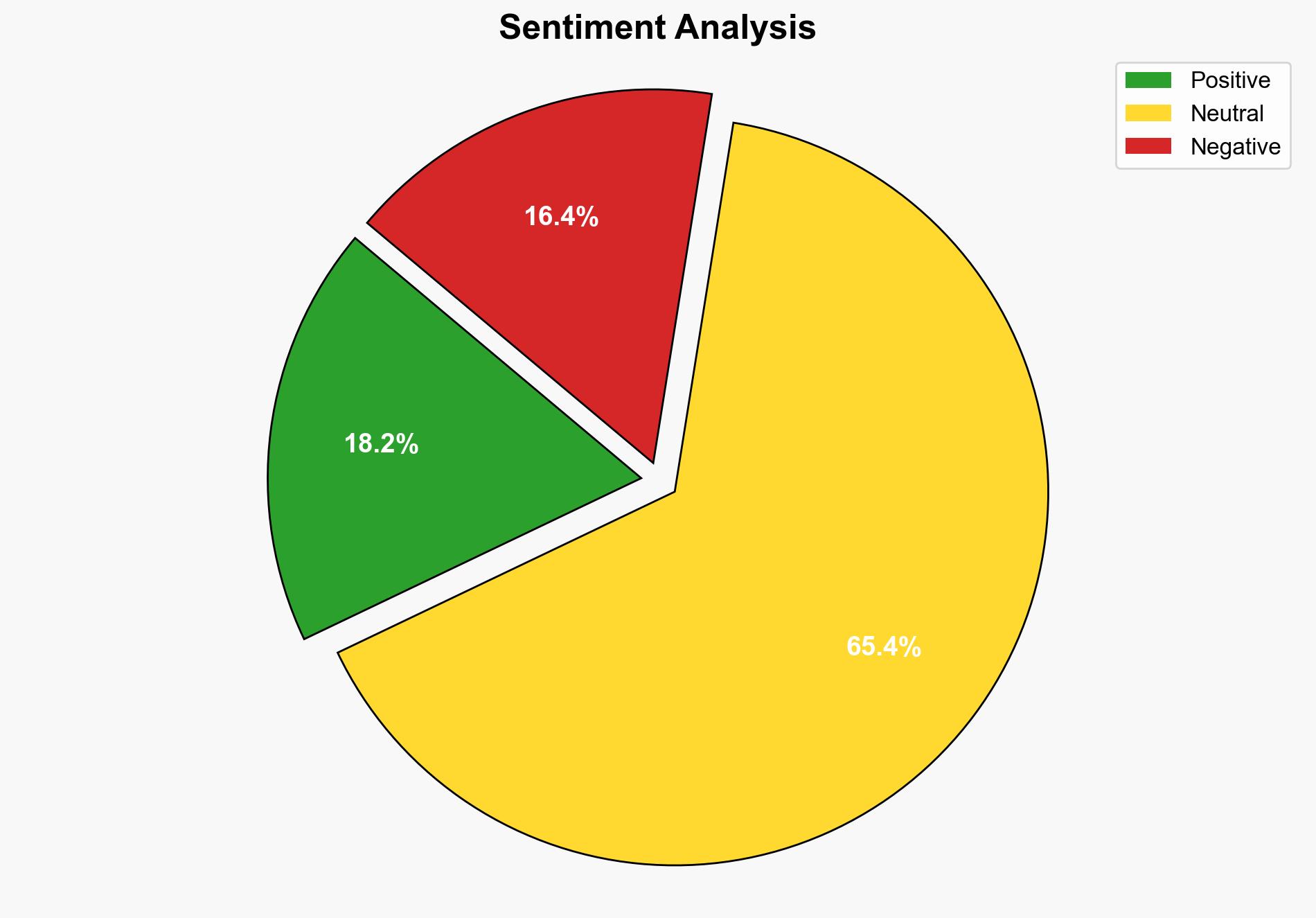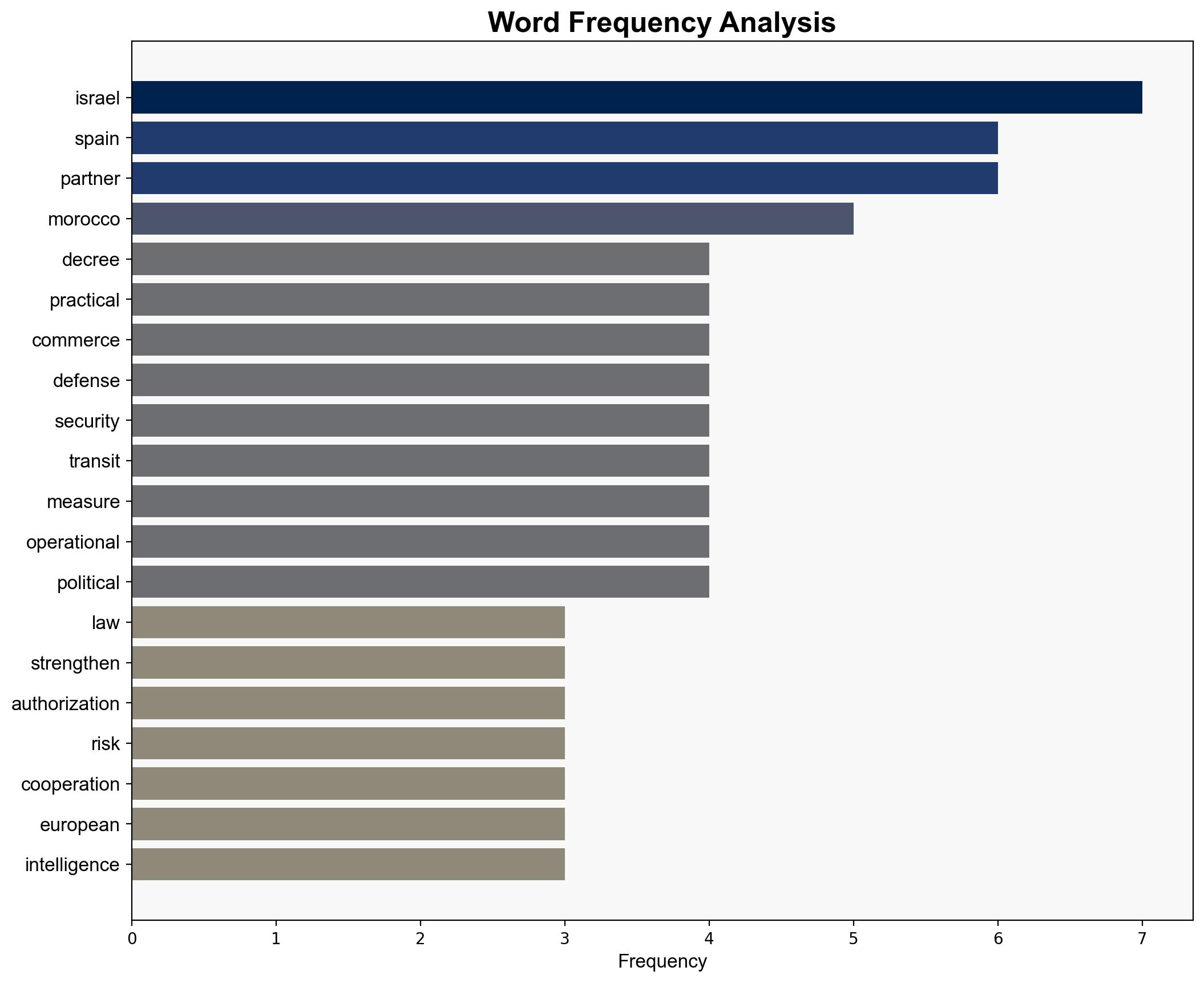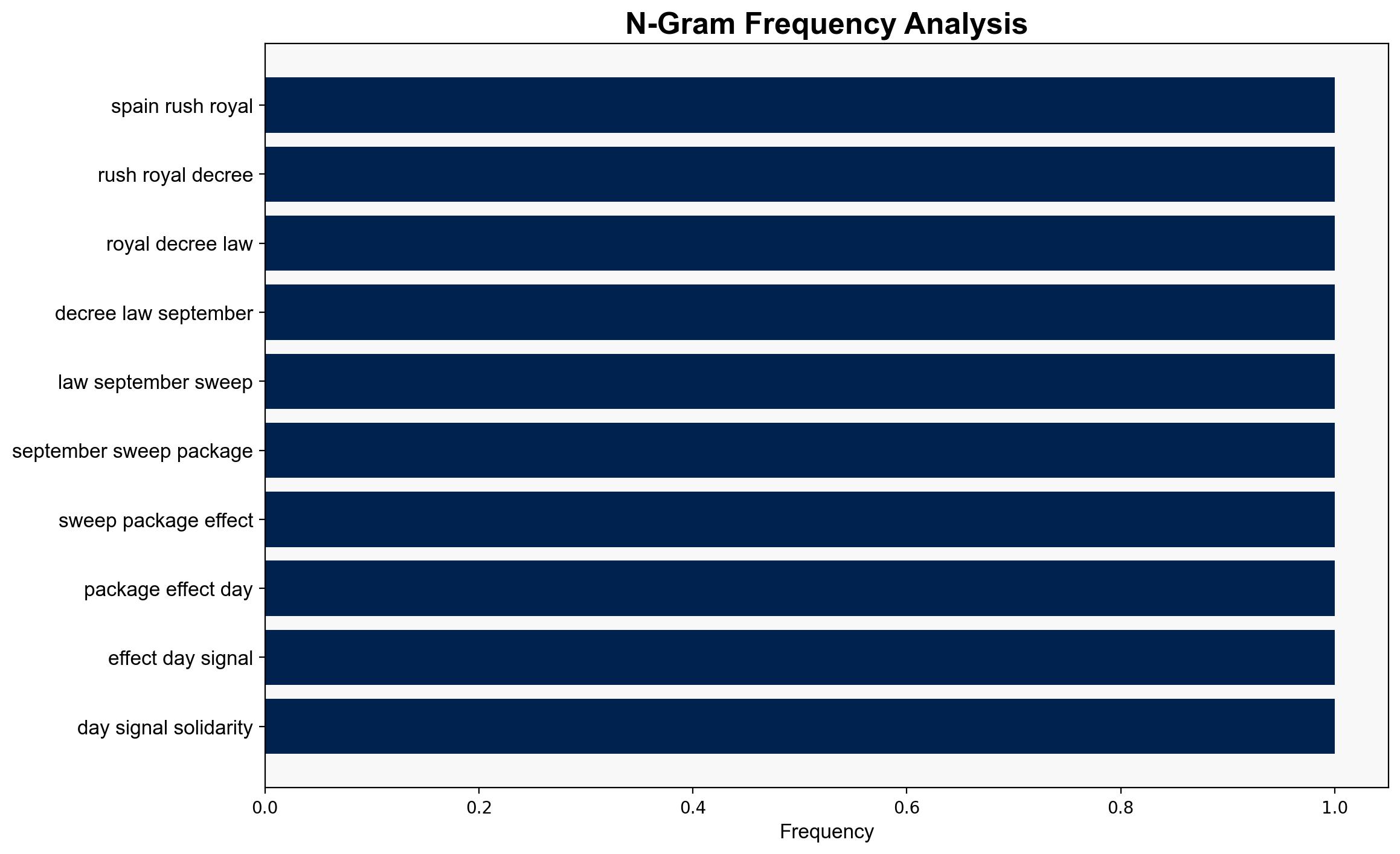Spains Gaza decree is a strategic mistake – Israelnationalnews.com
Published on: 2025-11-06
Intelligence Report: Spain’s Gaza Decree is a Strategic Mistake – Israelnationalnews.com
1. BLUF (Bottom Line Up Front)
The strategic judgment is that Spain’s decree imposing restrictions on defense and dual-use goods with Israel is likely to destabilize regional security and strain diplomatic relations. The hypothesis that this decree will weaken Spain’s strategic position and alliances is better supported. Confidence level: Moderate. Recommended action: Engage in diplomatic dialogue to reassess and potentially recalibrate the decree’s scope to mitigate adverse impacts.
2. Competing Hypotheses
1. **Hypothesis A**: Spain’s decree is a principled stance aimed at promoting peace and human rights by restricting military support to conflict zones.
– **Supporting Evidence**: The decree signals solidarity with humanitarian concerns and aims to enforce compliance with international law.
– **Contradictory Evidence**: The broad scope of the embargo may inadvertently harm civilian and humanitarian operations.
2. **Hypothesis B**: Spain’s decree is a strategic miscalculation that will weaken its regional influence and economic interests.
– **Supporting Evidence**: The decree disrupts established supply chains, risks economic instability, and may push Israel to seek alternative partners, such as Morocco.
– **Contradictory Evidence**: There is potential for Spain to leverage this stance to negotiate stronger diplomatic ties with other EU countries.
Using ACH 2.0, Hypothesis B is better supported due to the immediate and tangible disruptions identified in logistics and economic sectors, outweighing the potential long-term diplomatic gains suggested by Hypothesis A.
3. Key Assumptions and Red Flags
– **Assumptions**: The decree assumes that economic pressure will lead to political change without significant backlash. It presumes that Spain’s actions align with broader EU policies.
– **Red Flags**: Lack of clear communication and coordination with EU partners. Potential for retaliatory measures from Israel or its allies.
– **Blind Spots**: Underestimation of the decree’s impact on humanitarian operations and the potential for increased regional instability.
4. Implications and Strategic Risks
– **Economic Risks**: Disruption of trade routes and financial transactions could lead to economic downturns in sectors reliant on Israeli partnerships.
– **Geopolitical Risks**: The decree may strain Spain’s relations with Israel and its allies, potentially isolating Spain within certain diplomatic circles.
– **Security Risks**: By pushing Israel to seek alternative alliances, such as with Morocco, Spain may inadvertently strengthen regional security dynamics unfavorable to its interests.
– **Cascading Threats**: Potential for increased regional tensions and asymmetric threats if diplomatic channels are not maintained.
5. Recommendations and Outlook
- Engage in diplomatic discussions with Israel and EU partners to reassess the decree’s impact and explore modifications that balance humanitarian concerns with strategic interests.
- Monitor economic indicators and supply chain disruptions to mitigate adverse effects on Spanish businesses and humanitarian operations.
- Scenario Projections:
– **Best Case**: Recalibration of the decree leads to enhanced diplomatic negotiations and strengthened EU cohesion.
– **Worst Case**: Escalation of regional tensions and economic instability due to retaliatory measures and disrupted alliances.
– **Most Likely**: Continued diplomatic strain with gradual adjustments to the decree as economic and political pressures mount.
6. Key Individuals and Entities
– Banco Sabadell: Notably involved in compliance issues related to the decree.
– Israeli and Moroccan governments: Potentially pivotal in reshaping regional alliances.
7. Thematic Tags
national security threats, economic stability, regional diplomacy, humanitarian impact





